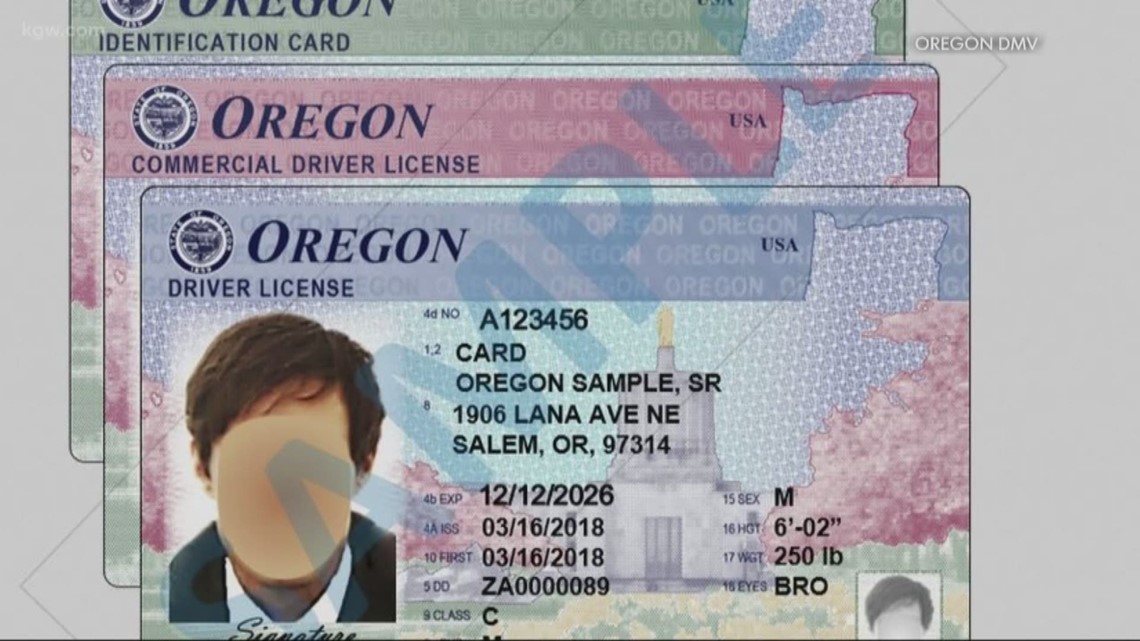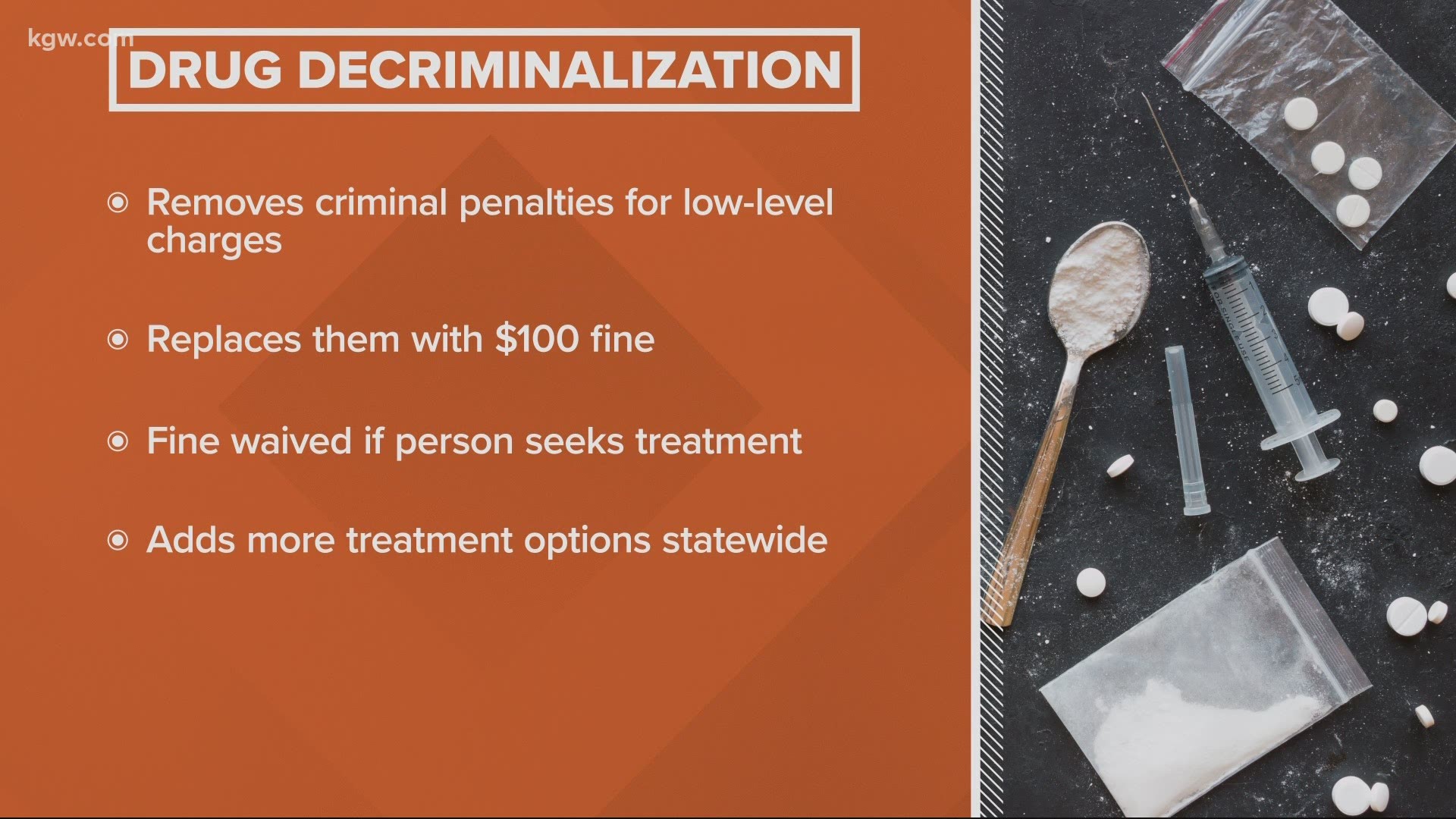PORTLAND, Ore. — The new year is right around the corner and with every new year comes new laws. Here’s a look at a few changes coming in 2021 in Oregon and Portland.
Cigarette, tobacco tax increase
There will be an increase in taxes on cigarettes and other tobacco products beginning Jan. 1 in Oregon. The increase was voted on through Measure 108, which voters passed during the November general election.
Here’s a look at the increases that will go into effect, according to the Oregon Department of Revenue:
- The cigarette tax will increase by $2 per pack of 20 and $2.50 per pack of 25.
- Little cigars, collectively weighing 3 pounds or less per 1,000, must be sold in sealed packages of at least 20. The packs will be taxed as cigarettes and will require an Oregon cigarette tax stamp.
- Inhalant delivery systems, such as vaping and e-cigarette products, will be taxed at a rate of 65% of the wholesale purchase price.
- The cap on the tax on cigars increases from 50 cents to $1.
Revenue from the increased taxes will be used to fund health coverage for low-income families, including mental health services, and to fund public health programs, including prevention and cessation programs, addressing tobacco- and nicotine-related diseases.
Driver licenses for all


Beginning in the new year, people will no longer have to provide proof of legal presence in the U.S. to get an Oregon standard driver’s license or ID card. The change was part of House Bill 2015, which the Oregon Legislature passed during the 2019 legislative session.
While people will no longer need to prove legal presence, all other requirements to obtain a standard driver’s license or ID card remain in place. That includes proof of name, identity and Oregon residency.
People who are unable to provide proof of U.S. citizenship will not be automatically registered to vote after getting a driver’s license, according to the Oregon Department of Motor Vehicles (DMV).
The standard driver’s license will not be REAL ID compliant, the DMV said. So, when the Transportation Security Administration (TSA) begins enforcing REAL ID, which is set to start on Oct. 1, 2021, people with the standard driver’s licenses will not be able to get on a plane. A valid passport, REAL ID or another federally accepted document will be required.
According to the Oregon DMV, 13 states and Washington, D.C., currently issue driver licenses to people who do not provide proof of lawful status.
Facial recognition ban (Portland only)
Beginning Jan. 1, private entities, including businesses, in Portland will be banned from using facial recognition technology “in places of public accommodation.” The ordinance was passed by Portland City Council in September. The city council also passed a similar ban on city bureaus, which is already in effect. Mayor Ted Wheeler and Commissioner Jo Ann Hardesty, who both championed the ordinance, said facial recognition technology disproportionately harms Black, Indigenous and people of color.
The City of Portland said places of public accommodation include:
- Establishments serving food or drink.
- Sales or retail and service establishments.
- Places of public recreation, public gathering, exercise or entertainment.
The city said the following places are not considered places of public accommodation:
- Commercial facilities operated by private entities.
- Private clubs.
- Religious organizations.
- Private residence or place of accommodation that in its nature, is distinctly private.
Decriminalization of low-level drug possession (takes effect Feb. 1)
During the November election, Oregon voters passed Measure 110, also called the Drug Addiction Treatment and Recovery Act, which decriminalizes small amounts of illegal drugs for personal use. The new law takes effect Feb. 1.
The law does not legalize drugs, which is an important distinction. A person caught with a small amount of drugs, including Schedule I drugs like heroin and LSD, will face “no more than a Class E violation.” That person will then face a $100 fine, which may be waived if the person seeks treatment.
People with either a felony criminal conviction or two or more past drug convictions may face more serious penalties. Laws surrounding the sale or possession of large quantities of drugs remain unchanged.
The purpose of the new law is to adopt a health-based approach to the state’s drug crisis by making treatment and recovery services available to anyone who needs and wants access to those services.
The changed penalties go into effect Feb. 1. That’s also when the Oregon Health Authority must establish a temporary addiction recovery, which will assess clients’ treatment needs over the phone. Addiction recovery centers will open within coordinated care organizations statewide by Oct. 1, 2021, and phone services will be discontinued.
Minimum wage increase (takes effect July 1)
The minimum wage in Oregon has risen every year since 2016. That continues in 2021, but not until July 1.
Here’s how the minimum wage in Oregon is currently tiered:
- Standard: $12/hour
- Portland metro: $13.25/hour
- Nonurban counties: $11.50/hour
The minimum wage will increase to the following payments on July 1:
- Standard: $12.75/hour
- Portland metro: $14/hour
- Nonurban counties: $12/hour
The state’s minimum wage is set to go up again in 2022.

